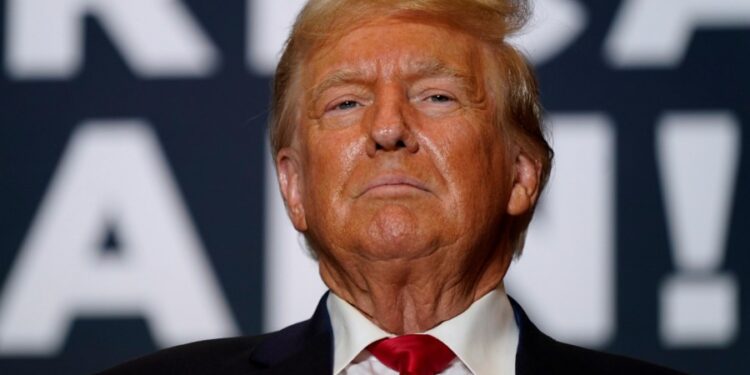
President-elect Trump in a new interview that aired Sunday said he couldn’t guarantee Americans would not pay more because of tariffs he has pledged to impose on imported goods.
Trump, in an interview with Kristen Welker of “Meet the Press,” shrugged off repeated warnings from economists that tariffs on Canada, Mexico, China and others would raise prices for American consumers, saying he did not believe them.
“Can you guarantee American families won’t pay more?” Welker asked.
“I can’t guarantee anything. I can’t guarantee tomorrow. But I can say that if you look at my – just pre-Covid, we had the greatest economy in the history of our country,” Trump responded.
When Welker noted that U.S. companies like Walmart, Black & Decker, and others have warned that tariffs will force them to increase their prices, Trump again insisted tariffs boost the economy.
“They also solve another problem,” Trump said. “If we were going to have problems having to do with wars and having to do with other things, tariffs – I have stopped wars with tariffs by saying, ‘You guys want to fight, it’s great. But both of you are going to pay tariffs to the United States at 100%.'”
“Tariffs are a – properly used, are a very powerful tool, not only economically, but also for getting other things outside of economics,” Trump added.
The president-elect in recent weeks threatened tariffs against Canada and Mexico, two of the United States’ biggest trading partners, unless they did more to crack down on the flow of migrants and illegal drugs across the border.
Trump noted that he spoke on the phone with Mexican President Claudia Sheinbaum Pardo and that Canadian Prime Minister Justin Trudeau flew to meet with him at Mar-a-Lago within days of the threat.
The president-elect has for months pledged to impose blanket tariffs on all imports, a plan economists have warned could spike the cost of goods in the United States and cause companies to pass along increased costs to consumers. But Trump has shrugged off those concerns, claiming the tariffs will cause more companies to do business inside the U.S.







